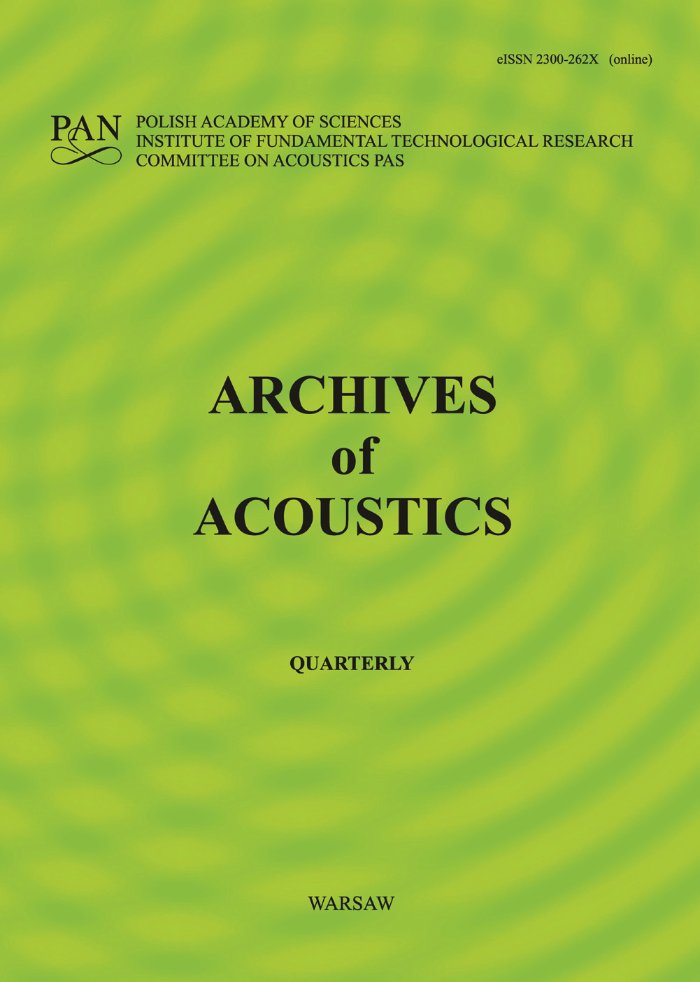Abstract
In this paper it is shown that a multiple-loudspeaker system composed of N similar loudspeakers can be replaced by N independent, similar single-loudspeaker systems. This provides the possibility of applying known methods of analysis and synthesis to multiple-loudspeaker systems. The efficiency of the multiple-loudspeaker system is calculated and measured results of the efficiency are given. Standardized transmittance functions for multiple-loudspeaker systems are discussed. The resonance frequencies of multiple-loudspeaker systems are determined.References
[1] R. F. ALLISON, R. BERKOVITZ, The sound field in home listening rooms, J. Audio Eng. Soc., 20 (6), 4569-469 (1972).
[2] J. E. BENSON, Theory and design of loudspeaker enclosures. Part 1. Electroacoustical Relations and Generalized Analysis, AWA Techn. Rev., 14, 1-58 (1968).
[3] A. PODREZ, J. RENOWSKI, K. RUDNO-RUDZIŃSKI, Loudspeaker systems [in Polish], Scientific Works of the Institute of Telecommunications and Acoustics, Wrocław Technical University, Monograph series No. 10.
[4] V. T. SATHYANARAYANA, Resonance and efficiency of column speakers, Acustica, 28, 154-158 (1973).
[5] R. H. SMALL, Direct-radiator system analysis, IEEE Trans. Audio, AU-19 (3), 296-281 (1971).
[2] J. E. BENSON, Theory and design of loudspeaker enclosures. Part 1. Electroacoustical Relations and Generalized Analysis, AWA Techn. Rev., 14, 1-58 (1968).
[3] A. PODREZ, J. RENOWSKI, K. RUDNO-RUDZIŃSKI, Loudspeaker systems [in Polish], Scientific Works of the Institute of Telecommunications and Acoustics, Wrocław Technical University, Monograph series No. 10.
[4] V. T. SATHYANARAYANA, Resonance and efficiency of column speakers, Acustica, 28, 154-158 (1973).
[5] R. H. SMALL, Direct-radiator system analysis, IEEE Trans. Audio, AU-19 (3), 296-281 (1971).


